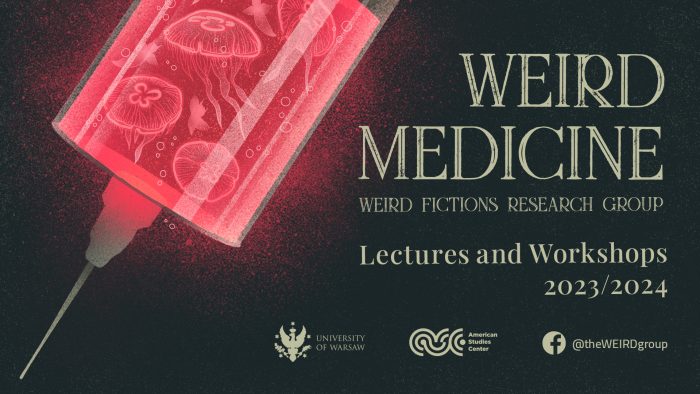Join Weird Fictions Research Group for yet another lecture in the Weird Medicine series!
Jeanne Prevost
“I Want it Out!”: Gynaehorror & Pro-Life Narratives in Post-Roe v. Wade
Tuesday, March 12, 2024
4:45PM
You can get 3 OZN points for participating in this event.

Where?
Dobra 55, room: 2.118
(the building features some mobility accommodations: ramp and lift)
What?
Popular cinema reflects political upheaval and allows for disassociated examinations of society. Horror, perhaps more than any other genre, has few qualms in either critically subverting or reifying existing power structures. A particular thematic subgenre that explores gendered power structures is Gynaehorror. As a thematic subgenre, it refers to films which centre lived female experiences and the embodied horrors therein – such as the state’s use of biopower in its dominion over reproductive autonomy. One such film is Cronenberg’s “The Fly”, which tacitly explores themes of reproductive freedoms. Yet in the canon of horror, it surprisingly stands amongst few to take a similar stance on the inalienable right concerning the termination of one’s pregnancy.
Who?
Jeanne Prevost holds a baccalaureate in Women’s Studies from Concordia University wherein she focused on reproductive rights, de/anti-colonialism, and foucauldian analysis. Over her academic path, she has cultivated an autodidact interest in the horror genre, exploring it through the lenses of queer theory and cultural positioning, particularly within slasher films. She is currently pursuing a master’s degree in the University of Warsaw’s Linguistics faculty at the Department of International Legal Communication, aiming to blend her passion for critical theory with legal discourse. In her spare time, she critically analyses horror through audiovisual essays, of which her current projects include ‘Capitalism & Authority within Child’s Play’ and ‘Nostalgic Subjectivity of Skinamarink’.




